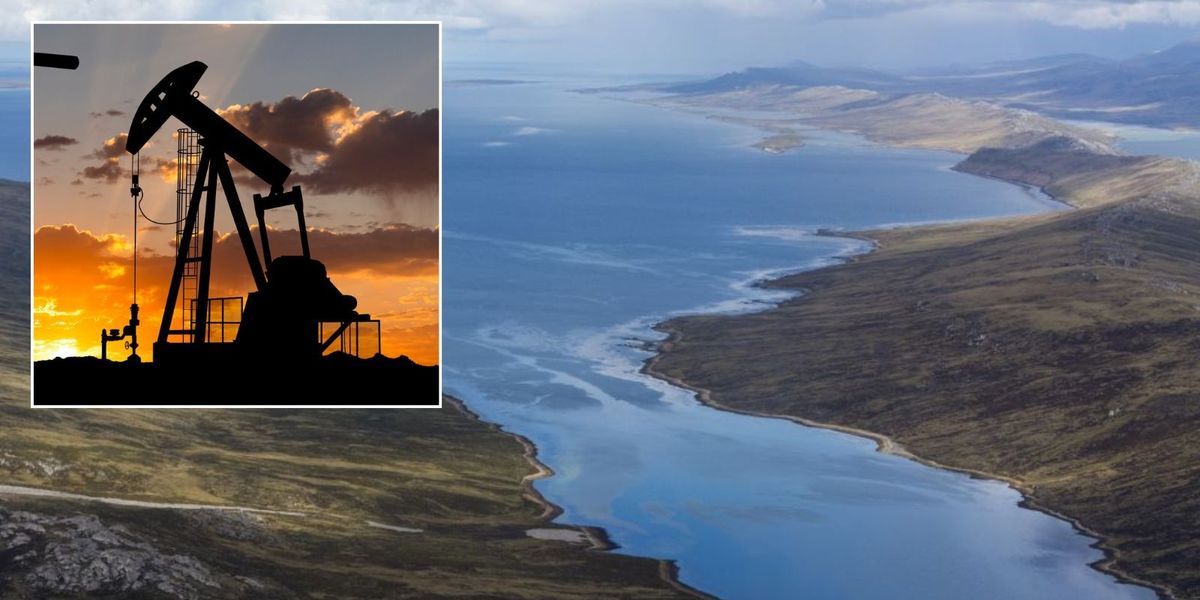The Falkland Islands could pave the way for oil exploration in its waters for the first time in history – triggering an economic boost for locals.
Islands are set to be asked if they will back the scheme, which would see up to 500 million barrels of oil extracted from the Sea Lion field.
Israeli company, Navitas Petroleum has bought most of the rights to the field so its shareholders in the US and Israel will receive the majority of profits.
However, locals would gain millions of pounds in royalties and taxes levied on the profits.
Islands are set to be asked if they will back the scheme, which would see up to 500m barrels of oil extracted from the Sea Lion field
Getty
The cash injection could transform the islands’ entire economy – which currently relies on sheep farming and fishing.
Initial plans released by Navitas suggest drilling 23 wells to access up to 500 million barrels of oil initially, with more to follow.
The oil extracted from Sea Lion would be processed by a floating production storage and offloading vessel, and tankers would then transport the oil for sale in global energy markets.
It is unlikely that much, if any, of the oil would reach the UK.
However, these plans could be politically embarrassing for Britain, as the substantial oil production would significantly undermine the UK’s commitments to reducing emissions.
LATEST DEVELOPMENTS:
Labour has been pushing the net zero transition as a key part of its mandate.
Starmer has promised to ban all new oil and gas exploration in British waters.
However, the ban would not apply to the Falklands as local administration chiefs control their drilling rights to surrounding waters.
The field is believed to hold 1.7bn barrels of oil – making it larger than the North Sea’s largest planned development.
Many members of the Falklands government have aspired to establish the island as a hub for oil production.
Locals would gain millions of pounds in royalties and taxes levied on the profits
Getty
“Offshore hydrocarbons have the potential to be a significant part of our economy over the coming decades,” John Birmingham, deputy portfolio holder for natural resources, MLA (Member of the Legislative Assembly) told The Telegraph.
“At the same time, we recognise that the environmental impacts must be carefully managed and it is essential that the unique environment of the Falkland Islands is protected.
“We welcome the submission of the environmental impact statement so that the public can express their views on the issues.”
A spokesman for Uplift, an environmental group that campaigns to phase out oil and gas, added: “The development’s production emissions will add to the UK emissions counted towards its Nationally Determined Contribution – which the UK is already off track to meet.”
